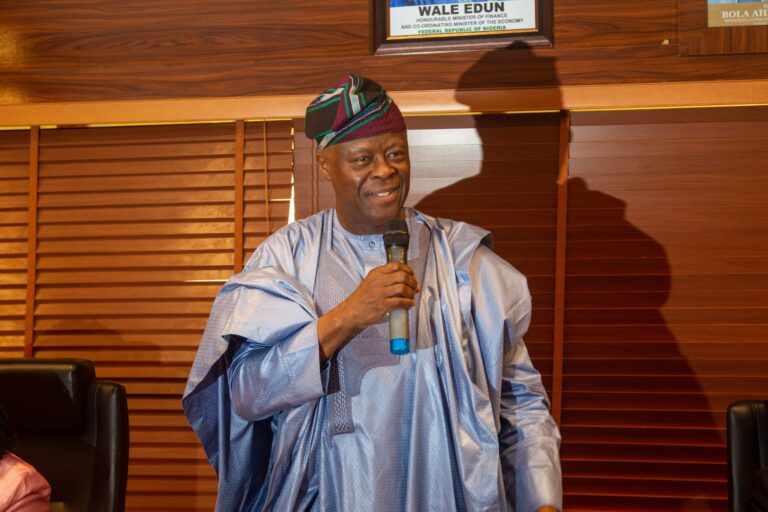The Minister of Finance and Coordinating Minister of the Economy, Wale Edun, has called on Lagos State to spearhead the expansion of Nigeria’s economic base, underscoring the state’s crucial role in driving national growth.
Speaking at the two-day Eko Revenue Plus Summit, themed ‘Unlocking New Revenue Streams for Lagos State’, Edun, represented by Dr. Armstrong Takang, CEO of Nigeria’s Ministry of Finance Incorporated, urged Lagos to move beyond traditional tax compliance and adopt innovative strategies to expand its economic potential.
“Lagos contributes at least 25% of Nigeria’s GDP,” Edun stated. “With a projected state budget of N3.5 trillion for 2025, Lagos must align its economic resources with its GDP share. A budget smaller than federal allocations, which exceed N40 trillion, cannot adequately address the state’s infrastructure needs or improve residents’ quality of life.”
The minister emphasized the need for policies that diversify Lagos’ revenue streams and reduce over-reliance on taxes. “We need a broader conversation about growing the economic pie,” Edun explained. “Tax revenues alone will not meet Lagos’ aspirations. The state must focus on attracting investments and expanding its economic base.”
Edun also recognized Lagos as a model for other states, noting, “Governors across the country often look to Lagos as a benchmark for economic strategies. Lagos must set the standard for others.”
Highlighting the importance of public-private partnerships (PPPs) in financing infrastructure, Edun pointed out that even with its entire budget allocated to capital projects, Lagos would still fall short of meeting its infrastructure needs. “PPPs and collaboration with international organizations are critical for mobilizing resources for sustainable development,” he added.
He also identified untapped revenue opportunities through digitalization and improved management of land assets. “Lagos must modernize its asset management systems. There are billions of dollars in potential investments tied to land titles, many of which are incomplete or non-existent, creating a gap in revenue generation.”
Edun proposed the creation of a comprehensive asset register to better manage the state’s properties and intangible assets. “It’s not just about what Lagos owes; it’s about understanding what it owns and ensuring these assets generate value,” he stated.
In addition, Edun stressed the importance of strengthened collaboration between Lagos and the federal government. Referring to the recently signed Green Line Project with China, he said, “Large-scale infrastructure projects require significant capital investments that states alone cannot shoulder. Effective collaboration between state and federal authorities is essential.”
He also recommended that Lagos explore innovative financing models such as blended finance and capital market instruments to attract private sector investments. “For long-term projects in agriculture and housing, Lagos can leverage its resources at concessional rates to draw in private sector investments, boosting economic activity and generating tax revenues,” Edun suggested.
In conclusion, the minister reiterated Lagos’ pivotal role in Nigeria’s economic transformation. “Lagos must focus on creating a larger economy, not just increasing revenues. The state should lead in implementing policies that foster private sector growth while ensuring equitable development for all its citizens.”
Edun’s remarks emphasize the need for bold, forward-thinking strategies that position Lagos to lead the charge in Nigeria’s economic growth and development.

